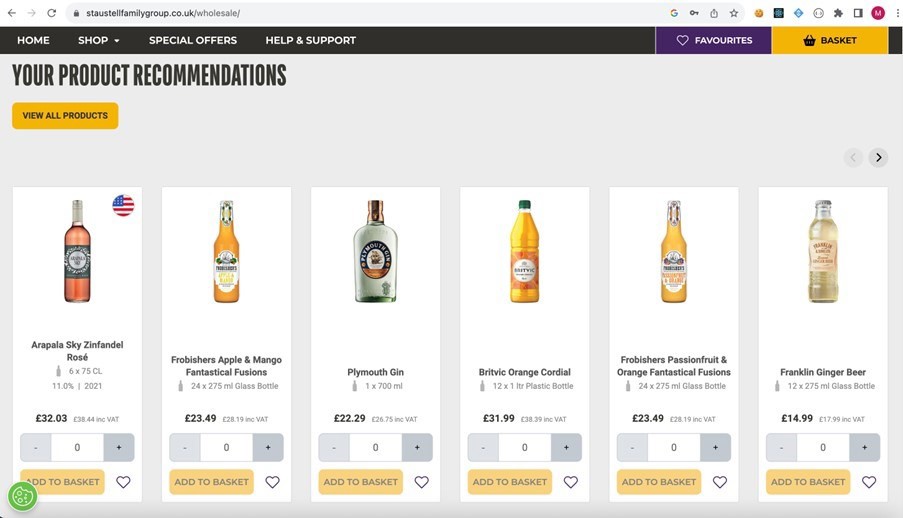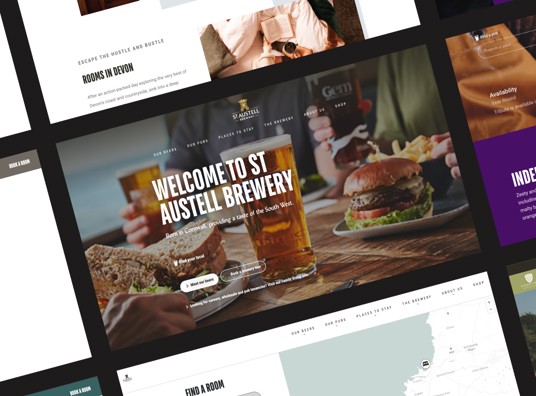Introducing AI to your content recommendations strategy
In 2024, it is fair to assume that most products or platforms are utilising content recommendations of some description to proactively suggest content to users.
An everyday tool for content behemoths
Whether it is Netflix or Amazon Prime suggesting a subset of films, based on films you have watched, Spotify curating a playlist of favorite artists, or a website simply suggesting related articles led by the topic that’s been recently read; the need to produce relevant content to increase engagement has never been higher. The expectation for that content to be accurately recommended, therefore, is even greater.
This need for relevance and engagement is particularly critical within the hospitality industry which can be divided into four main areas: Food and Beverage, Travel and Tourism, Lodging, and Recreation. Across these, the UX experience must be timely, personalised, relevant, and easily discoverable to users; all qualities that tap into the key advantages of using AI to generate content recommendations.
How are we using it for clients?
At true, we have clients within this sector that have been integrating with Algolia, a content recommendations platform. St Austell, for example, uses the Umbraco platform to manage their brewery site, pub sites, and wholesale site which allows online purchasing of thousands of products and beverages for their account holders to stock their pubs and venues.
Algolia allows St Austell to benefit from a filtering approach known as collaborative filtering. This is where recommendations are made on the preferences and behaviours of users who have similar interests. The AI algorithm identifies users who have similar viewing or purchase history and recommends items they have also consumed, via functionalities like 'frequently bought with' (beers in the example of St Austell), or 'people who viewed this went onto buy…'; a compelling way of increasing discoverability of other products.
We can also use hybrid filtering to combine collaborative filtering with content filtering (this means the filtering is a lot more focused on the specific preferences of the user alone). This provides an extremely tailored and personalised experience.
A cross and up-selling tool
For St Austell, this is used to provide 'similar items' and 'stock alternatives' when a beer is sold out. Within the travel industry, for example, it could help the platform suggest an alternative (but very similar) hotel to the one that the user is currently trying to book if the preferred hotel is already fully booked. The key takeout is that the product is interchangeable – the process works across products and categories and is an invaluable tool for cross-selling.
Another valuable feature is the ‘trending items’ which currently sits on the St Austell wholesale homepage. It quite literally uses AI to produce a curated list of currently trending products which allows users to be inspired by what other users are purchasing. This was especially useful during Wimbledon when the trending items were all Pimms-related products!
An example of this feature on the St Austell website can be seen below.

More than just recommendations...
Algolia is not just a recommendation engine, it also has a highly sophisticated AI search tool which allows personalised and prioritised search facilities. This means that for each query Algolia will use your users’ profiles to re-rank a result list based on what it knows to be contextual influencers.
To break it down a little - if a user types into Google the name ‘Michael’, varying options would come up… Michael Buble, Michael Jordan, Michael Caine, or any other Michael. Personalised search pulls from all that it knows about you and similar users to provide a prioritised list based on its understanding of which 'Michael' is being searched for.
Similarly, if applied to a user looking for tonic on the St Austell platform, the generic search would be re-ranked to facilitate what it knows about its user base and presented in priority order.
One final advantage of the tool to help with search within a specific industry is the functionality of synonym search. This is where Algolia starts to learn based upon user interaction and what a user might have meant when they searched for something else. So, it could proactively suggest that someone searching for ‘Pepsi Diet’, might be looking for 'Pepsi Max'. Consecutively, it can start to learn information like product codes so that travel agents, for example, can search directly using a tour code rather than needing to find the right search terms.
In summary, we are seeing more clients reap the rewards of this invaluable tool; it empowers businesses with a fast, scalable, and customisable search solution that enhances user satisfaction and engagement across various applications and platforms.
If you’d like to find out more about how Algolia could work for your business, drop us a line at info@truedigital.co.uk



